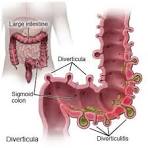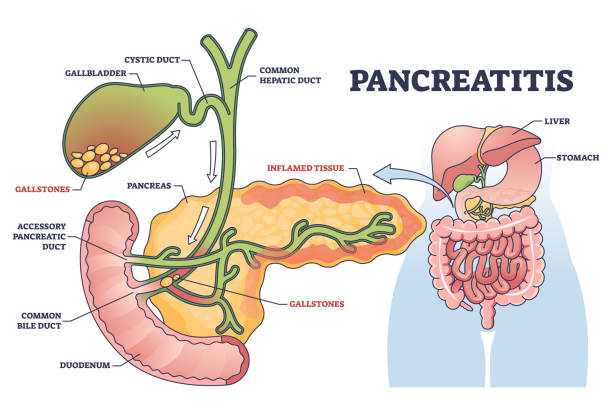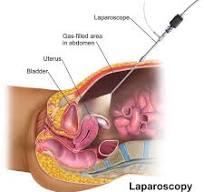INTRODUCTION
Health is wealth—a simple yet profound truth. One sickness can drain a
lifetime of savings, leaving individuals and families in distress. While modern
medicine has made remarkable strides in diagnosing and treating diseases, many
health conditions continue to defy medical solutions, pushing us to explore
alternative approaches.
Natural Remedies For Diverticulosis
Diverticulosis is a condition in which small pouches, known as
diverticula, form in the lining of the colon. These pouches develop due
to increased pressure within the colon, often from straining during
bowel movements or a lack of fiber in the diet. Unlike diverticulitis,
which involves inflammation or infection of these pouches,
diverticulosis typically does not cause symptoms. However, it can lead
to complications if left untreated. Individuals with diverticulosis may
experience bloating, mild abdominal discomfort, or irregular bowel
movements. The main focus in managing diverticulosis is to prevent
complications by maintaining good colon health, which often involves
dietary modifications and lifestyle changes.
1. High-Fiber Diet
How it works: A high-fiber diet is essential in managing
diverticulosis, as fiber helps prevent constipation, reduces
pressure in the colon, and promotes regular bowel movements.
Adequate fiber intake softens stools, which helps prevent the
formation of new diverticula or the aggravation of existing ones.
Preparation: Incorporate fiber-rich foods such as whole grains
(oats, brown rice), legumes (lentils, beans), fruits (apples, pears),
and vegetables (spinach, broccoli) into your diet. Aim for at least
25–30 grams of fiber per day.
Usage: Increase fiber intake gradually to allow your digestive
system to adjust. Drink plenty of water throughout the day to help
fiber function effectively.
Where to find: These foods are available in local markets close
to you.
2. Psyllium Husk
How it works: Psyllium husk is a natural source of soluble fiber
that helps regulate bowel movements by absorbing water and
forming a gel-like substance that softens stools. It can prevent
constipation and alleviate the discomfort associated with
diverticulosis.
Preparation: Mix one tablespoon of psyllium husk in a glass of
water and drink it daily. You can also add it to smoothies or
cereals for convenience.
Usage: Take psyllium husk once a day, and ensure you drink
plenty of fluids to prevent the husk from absorbing too much
water from the intestines.
Where to find: Psyllium husk is available in health food stores
and local markets close to you.
3. Aloe Vera Juice
How it works: Aloe vera is known for its soothing and anti-
inflammatory properties, which may help calm the digestive tract
and reduce irritation in the colon. It can aid in relieving
constipation and maintaining digestive health.
Preparation: Drink 1/4 cup of aloe vera juice before meals.
Usage: Consume aloe vera juice once or twice a day, but avoid
excessive amounts, as it may have a mild laxative effect.
Where to find: Aloe vera juice is available in health food stores
and some local markets close to you.
4. Probiotics
How it works: Probiotics are beneficial bacteria that help
maintain a healthy balance of gut flora. A healthy gut microbiome
can support digestion, reduce inflammation, and promote regular
bowel movements. Probiotics can also help prevent constipation,
a key concern in diverticulosis.
Preparation: You can take probiotic supplements or consume
probiotic-rich foods such as yogurt with live cultures, kefir,
sauerkraut, or kimchi.
Usage: Follow the recommended dosage on the probiotic
supplement label or consume probiotic-rich foods regularly.
Where to find: Probiotic supplements are available in
pharmacies and health food stores, while probiotic-rich foods can
be found in most local markets close to you.
5. Ginger Tea
How it works: Ginger has natural anti-inflammatory properties
that can help alleviate digestive discomfort and promote better
digestion. It may also reduce bloating and gas, common
symptoms of diverticulosis.
Preparation: Slice a fresh ginger root (about 1–2 inches) and
steep it in hot water for 10–15 minutes. Strain the tea before
drinking.
Usage: Drink ginger tea 2–3 times a day, especially before or
after meals, to support digestion.
Where to find: Fresh ginger is available in most local markets
close to you.
6. Turmeric
How it works: Turmeric contains curcumin, an active compound
known for its potent anti-inflammatory and antioxidant
properties. Turmeric may help soothe inflammation in the colon
and support overall digestive health.
Preparation: Add turmeric to your meals, or take turmeric
supplements as directed by a healthcare provider. You can also
mix turmeric powder with warm water or milk to create a
soothing drink.
Usage: Use turmeric regularly in cooking, or take supplements as
directed.
Where to find: Turmeric is widely available in spice form in
local markets, and supplements can be found in health food
stores.
7. Peppermint Oil
How it works: Peppermint oil has natural antispasmodic
properties, which can help relieve digestive discomfort, reduce
bloating, and improve bowel function. It may also help alleviate
gas and cramping associated with diverticulosis.
Preparation: Mix a few drops of peppermint oil with a carrier oil
(such as coconut or olive oil) and massage it onto your abdomen,
or consume enteric-coated peppermint oil capsules that release
the oil directly into the intestines.
Usage: Apply peppermint oil to your abdomen 1–2 times a day
or take peppermint oil capsules as directed.
Where to find: Peppermint oil and enteric-coated peppermint oil
capsules are available in health food stores.
Key Consideration
While these natural remedies may provide relief and support digestive
health, it is crucial to consult with your healthcare provider before
trying any new remedy, especially if you have other medical conditions
or are taking medications. These remedies should complement your
doctor’s prescribed treatment and dietary guidelines.



